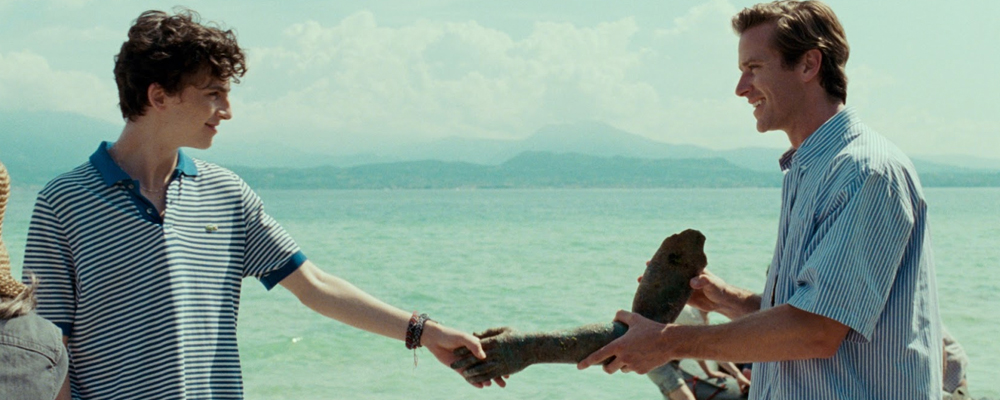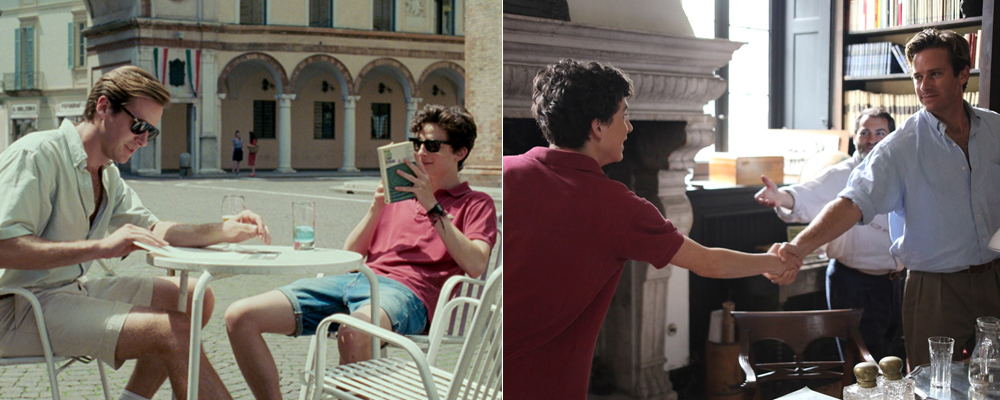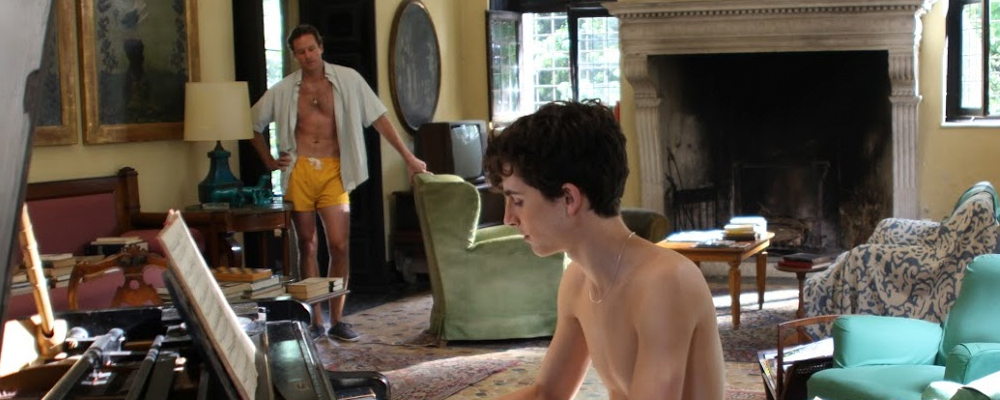Timothée Chalamet and Armie Hammer Tell Us Why ‘Call Me by Your Name’ Is a Universal Love Story
Alci Rengifo
Since its worldwide premiere at the Sundance Film Festival, “Call Me by Your Name” has been riding a wave of acclaim into award season. Written by James Ivory, a veteran director of elegant films like “Howards End,” and directed with refined style by Luca Guadagnino, the movie tells the story of a young Italian boy named Elio (Timothée Chalamet), who begins a love affair with a visiting American named Oliver (Armie Hammer). Oliver is a research assistant for Elio’s father Mr. Perlman (Michael Stuhlbarg). Hammer, Chalamet, Stuhlbarg and Guadagnino sat down with us to discuss the experience of making this unique drama.
“I wasn’t intimidated at all,” said Guadagnino when discussing how he felt going into the project. “I would just take my queue from Luca,” said Chalamet, jumping in, “He was real confident and knew what he wanted. I also have the tremendous gift of absolutely nobody knowing who I am, so I didn’t really have anything on the line,” he added with a cheerful acknowledgement of his newness to success at age 21.
“It’s a wonderful progression of watching two human beings become more and more sort of enthralled with each other, and finally feeling comfortable enough to open themselves up completely,” said Hammer in describing the significance of the film’s relationship. “I think that’s why this movie connects with so many different people, because regardless of your identification or orientation, you’ve felt these feelings before of being totally incapacitated by this feeling of desire for another person.”
But given the current political climate in the U.S. and abroad, the story told in “Call Me by Your Name” can take on a new resonance. Guadagnino is well aware of this. “I think that the inclination towards hatred, the inclination towards a sense of entitlement, the idea that you can mock people, the idea that there is no time for compassion, is something I feel around myself,” he said, “this film is a tiny attempt at indulging in the opposite of what I just described, in compassion and sharing and mutuality.”
For Stuhlberg, the compassion he attempted to convey in his own character was influenced by personal experience. “I had wonderful parents, I had a wonderful time growing up,” he explained, “and here I was given delightful and poignant things to say.” Stuhlberg had a humble air as he acknowledge Guadagnino as a guide and his co-stars as inspiration through-out the shooting process. “I watched and was dazzled by both Armie and Timothee’s fearlessness in diving into this material.”
“We had the luck in the universe that we got along great as human beings and struck a friendship on set,” said Chalamet, acknowledging that this fueled the chemistry in the film even more than absorbing the scripted character or era. The film takes place in 1983, yet Chalamet never struggled with adjusting to a specific mindset, the intimacy and energy of the set’s environment was enough. “The cardinal rule for me is to not be boring.”
Hammer found much to learn for the experience of conjuring Oliver. “He represents that thing in all of us that is the duality of being human. What you want and what you choose to go for are not always the same thing,” he said. There was a hint of humble embarrassment in Hammer when Guadagnino pointed out that he recalls Hammer being nervous about having to dance on camera. “He’s a beautifully complicated character. He’s very good about covering it.”
For Guadagnino the era the film is set in has a particular significance. “I think for me ’83 is the beginning of the end, but the end of what? I would say the end of the people’s power that sprouted in 1968 and died out with Reagan. If there is a zeitgeist in which parents like Elio’s can be and Elio can be, it is there.”
“Some people have said that this movie just let’s everything live,” added Hammer. “There’s a scene where we’re riding bikes and we ride past the camera down this road and we just keep riding and riding, and you watch these two people enjoy the summer as they disappear into it. If that film was made by a studio or if it was an American production, I think our sense of ADD would kick in.”
When asked about the question of why an openly gay actor wasn’t cast, Hammer replied, “I was honored to be asked to do this role. There wasn’t any personal hurtle for me to overcome, the challenge for me in this movie is that I knew it lived and died in the connection of these characters. There was no green screen, special effects or monsters. There was nothing to distract you at all.” A bond developed so well between Hammer and Chalamet that the two would spend their time off set together, blasting music where they were staying late into the night.
When it was time to go, the gang quickly stood up with Hammer giving some final advice, “alright everybody, go get warm.”
“Call Me by Your Name“ opens Nov. 24 in Los Angeles and New York and expands Dec. 22 and Jan. 19 to select theaters and nationwide.



